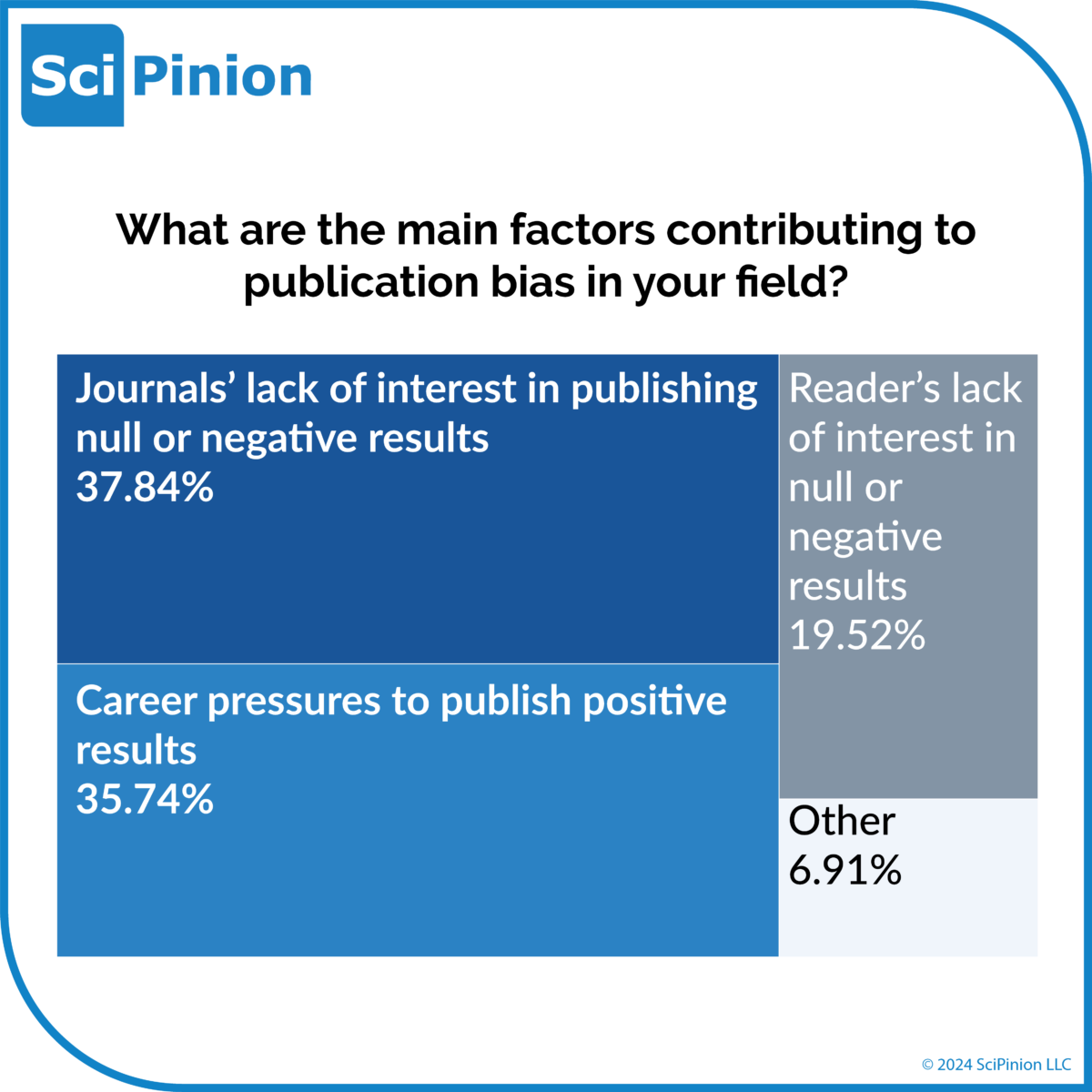Publication bias is the tendency for studies with positive, statistically significant results to be more likely to get published than studies with null or negative findings.
We recently conducted a survey among our network of scientific experts to delve into publication bias in academic research. This phenomenon, where studies with positive results are more likely to be published than those with null or negative findings, significantly impacts the integrity of scientific literature.
Key Findings from Our SciPoll:
– 37% cited “Journals’ lack of interest in publishing null or negative results”, while 35% pointed to “Career pressures to publish positive results”.
– 83% perceive publication bias as prevalent in their field.
– 40% cited changing academic incentives to be able to improve publication bias.
Implications Highlighted by Our Experts:
– Distorted Evidence Base: Leading to skewed meta-analyses.
– Overestimation of Treatment Effects: Particularly concerning clinical; research.
– Inefficient Research Funding Allocation: Wasting valuable resources.
Proposed Solutions from Our Community:
– Requiring all results be reported and published in a journal or creating a null result publishing forum.
– Calling for rigorous research to be recognized over only positive results.
– Improving peer review, educating on the importance of null findings and changing to registered reports.
These insights from our expert network underscore the ongoing challenges in maintaining research integrity and suggest potential pathways for addressing publication bias.
